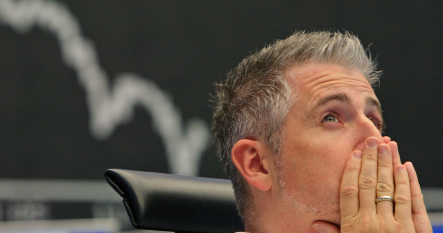The ZEW research institute said its closely watched index of economic sentiment fell 11.5 points to minus 63.9 points, the lowest level since the survey began in December 1991, in a survey that was likely also affected by the latest US financial market crisis.
The previous low was minus 62.2 points, hit during a recession in December 1992, a ZEW spokesman told AFP.
“High oil prices, the strong euro, the crisis in the United States, an interest rate hike by the European Central Bank and weak domestic consumer demand are likely to put pressure on German companies in the coming six months,” a ZEW statement said.
The European single currency leapt to a record high point above $1.60 in London Tuesday on mounting investor fears about the stormy US outlook, dealers said.
ZEW president Wolfgang Franz said that “the current problems of US mortgage banks demonstrate that the financial crisis is not over yet. This has reinforced the worries of financial market experts about the economic development in Germany in the next year.”
But European economist Ben May at Capital Economics said: “Given that the headline index has previously been a fairly poor predictor of German GDP (gross domestic product) growth, we still expect a relatively moderate economic slowdown.”
The survey nonetheless underscored German industrial order and production data that had many analysts saying the economy would contract in the second quarter of the year.
At Uni Credit Markets, economist Andreas Rees said: “Yes, the recession risk has risen. But no, we do not scribble our name below the R-word for three reasons.”
He noted the survey had signalled recessions in the past that did not materialise, and said a strong backlog of industrial orders would keep German firms going in the coming months. Thirdly, the Ifo survey of business sentiment, Germany’s leading economic indicator, “paints a far less pessimistic picture,” Rees said.
The next Ifo reading is due on July 24.
Markets have been rocked in the past week by sharp falls in the shares of two US mortgage-finance giants, Fannie Mae and Freddie Mac, while investment giant Lehman Brothers and other US banks have also been roiled by falling confidence in the banking sector.



 Please whitelist us to continue reading.
Please whitelist us to continue reading.